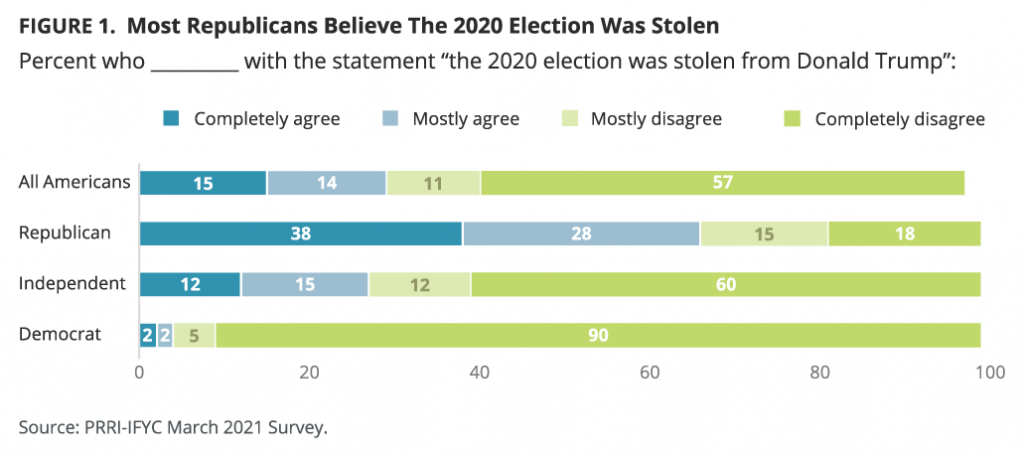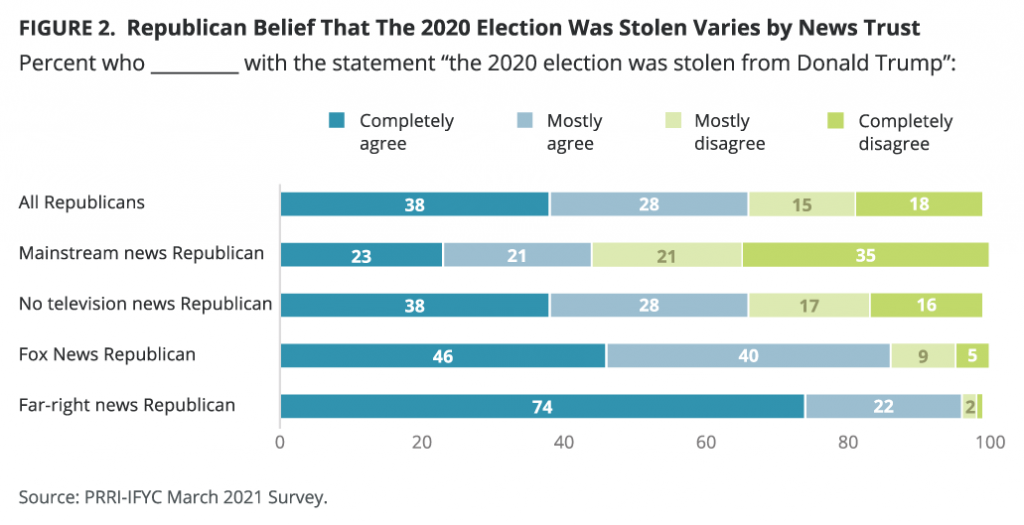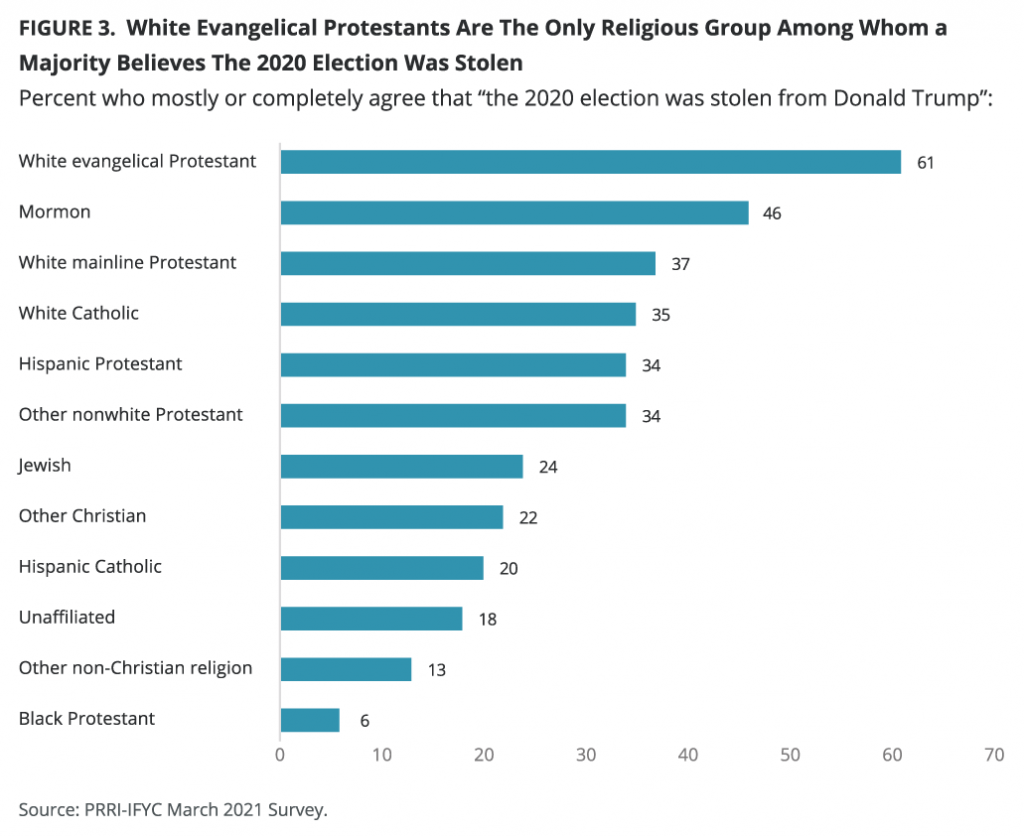Republicans in the House of Representatives have voted to dismiss Rep. Liz Cheney (R-Wyo.) from her position as chair of the House Republican Conference due to her refusal to support former President Donald Trump and go along with the so-called “Big Lie,” the false narrative that the 2020 election was stolen from Trump. PRRI’s March survey shows that Cheney is indeed in the minority within her party. While less than three in ten Americans (29%) agree with the statement that “the 2020 election was stolen from Donald Trump,” two-thirds of Republicans (66%) agree that the election was stolen. Among all Americans, more than two-thirds (68%) disagree with the “big lie,” including 57% who completely disagree. Only 33% of Republicans disagree, and less than one in five (18%) completely disagree.
Not surprisingly, most independents (72%) and Democrats (95%) disagree that the election was stolen from Trump. About one in four independents (27%) believe the 2020 election was stolen from Donald Trump, and only 4% of Democrats agree with this statement.

Additionally, Republicans’ views divide by what media outlet they trust most for television news. Those who trust mainstream news outlets most (44%), including local news, broadcast or public networks, CNN, and MSNBC, are less likely to agree that the election was stolen from Trump than all Republicans. Two-thirds of those who do not report a trusted television news source (66%) agree. Republicans who trust Fox News (86%) and far-right news networks (96%), including One America News Network and Newsmax, overwhelmingly support the stolen election conspiracy theory, including 46% of Republicans who trust Fox News and 74% of Republicans who trust far-right outlets most who completely agree the election was stolen.

White evangelical Protestants (61%) stand out as the only religious group among whom a majority agree that the 2020 election was stolen from Donald Trump, followed by 46% of Mormons who also hold this belief. About one-third of white mainline Protestants (37%), white Catholics (35%), Hispanic Protestants (34%), and other Protestants of color (34%) also agree that the 2020 election was stolen from Donald Trump. [1] Fewer Jewish Americans (24%), members of other Christian groups (22%), Hispanic Catholics (20%), and religiously unaffiliated Americans (18%) agree that the election was stolen. Members of other non-Christian religions (13%) and Black Protestants (6%) are the least likely to agree that the 2020 election was stolen from Donald Trump.[2]

White Americans (37%) and multiracial Americans (34%) are notably more likely than Americans of other races (24%) and Hispanic Americans (21%) to agree that the 2020 election was stolen from Donald Trump. [3] Only 7% of Black Americans hold this belief. Education matters across all race and ethnic groups. Among white Americans, those without a four-year college degree are significantly more likely than those with a four-year college degree or higher education to think that the 2020 election was stolen from Donald Trump (44% vs. 23%). Gaps are similar for multiracial Americans without and with a four-year college degree (41% vs. 16%), Americans of other races (37% vs. 16%), and Black Americans (9% vs. 1%). [4] Hispanic Americans with a college degree do not differ significantly from those without a college degree (22% vs. 15%).
About one in four young Americans ages 18-29 (26%) and Americans ages 30-49 (27%) agree that the 2020 election was stolen from Donald Trump, compared to 34% of Americans ages 50-64 and 34% of senior Americans ages 65 and over.
[1] “Other Protestant of color” includes all Protestants who are not white, Black, or Hispanic (including Asian American or Pacific Islander, multiracial, Native American, or any other race or ethnicity). Categories were combined due to sample size limitations.
[2] “Other Christian” includes all Christians who are not specified in any other category, including Catholics who are Black, Asian American or Pacific Islander, multiracial, Native American, and any other race or ethnicity; Jehovah’s Witnesses; Orthodox Christians; and any other Christian group. “Other non-Christian religion” includes those who are Muslim, Hindu, Buddhist, Unitarian Universalist, or any other world religion. Categories were combined due to sample size limitations.
[3] Americans of other races includes Asian American or Pacific Islander, Native American, and any other single race or ethnicity. Categories were combined due to small sample sizes. The number of cases of Americans who identify with other racial groups without a college education is 72. Yet differences in education are statistically significant.
[4] The number of cases for Americans of other races without a college education (N=72) and multiracial Americans with a college education (N=65) are less than 100 and should be interpreted with caution, but differences between the groups are statistically significant.